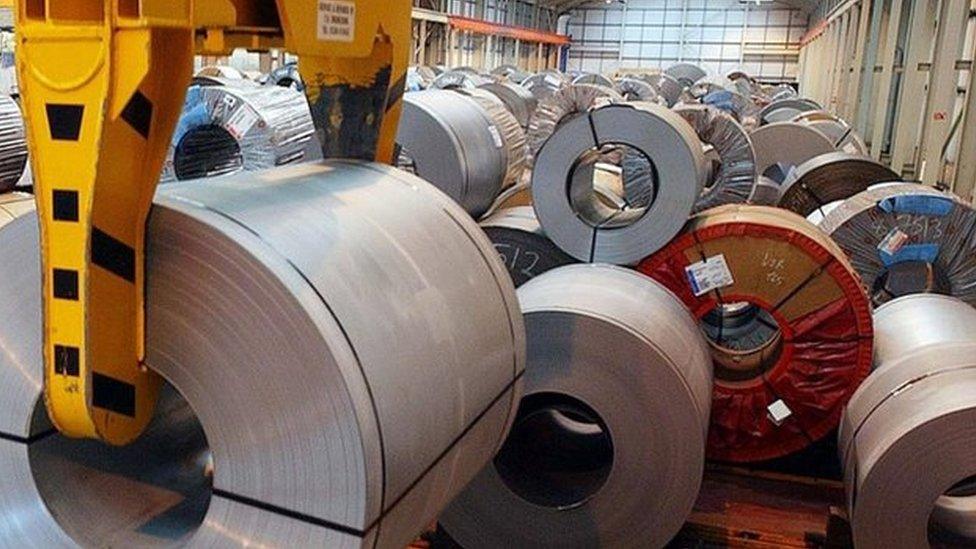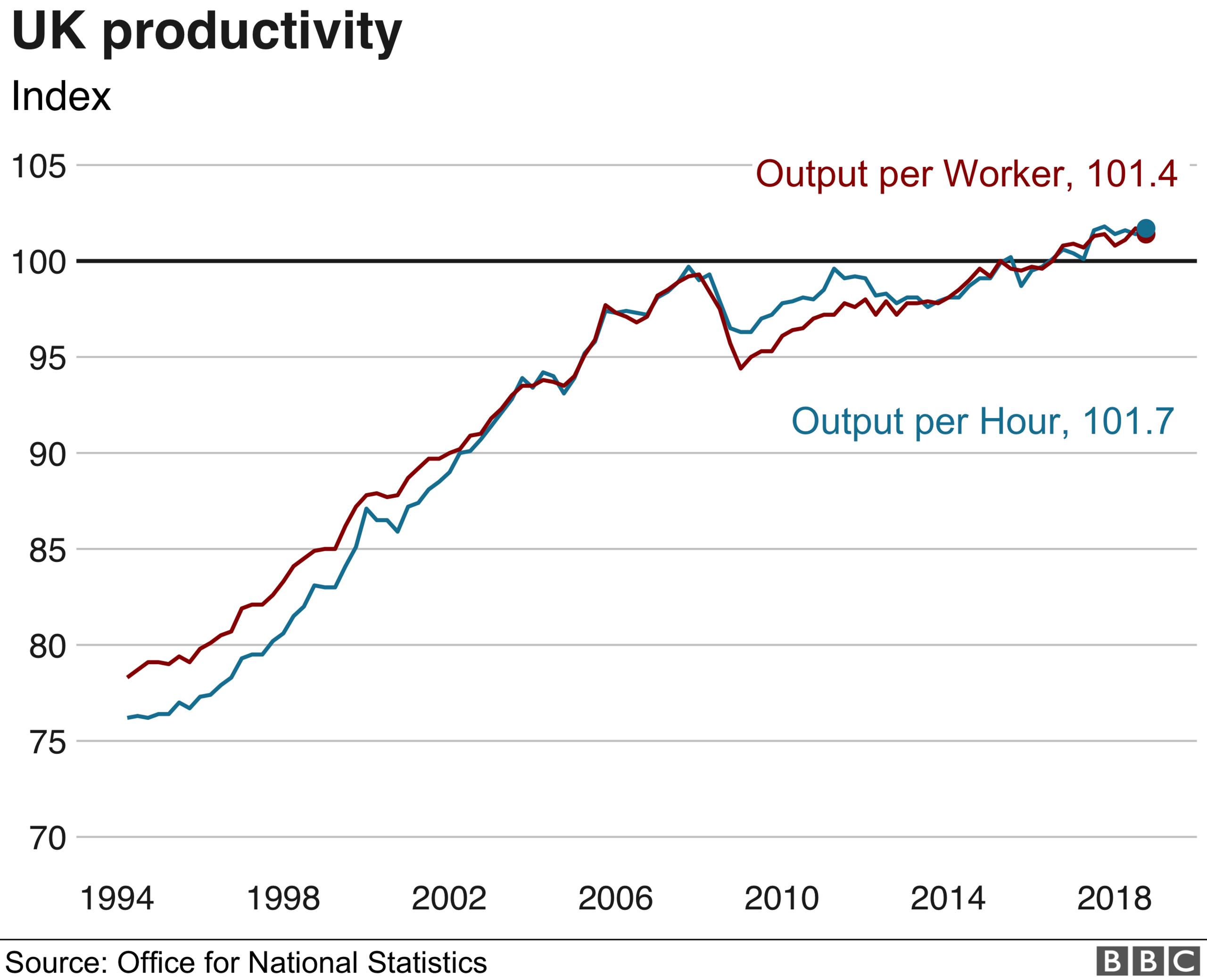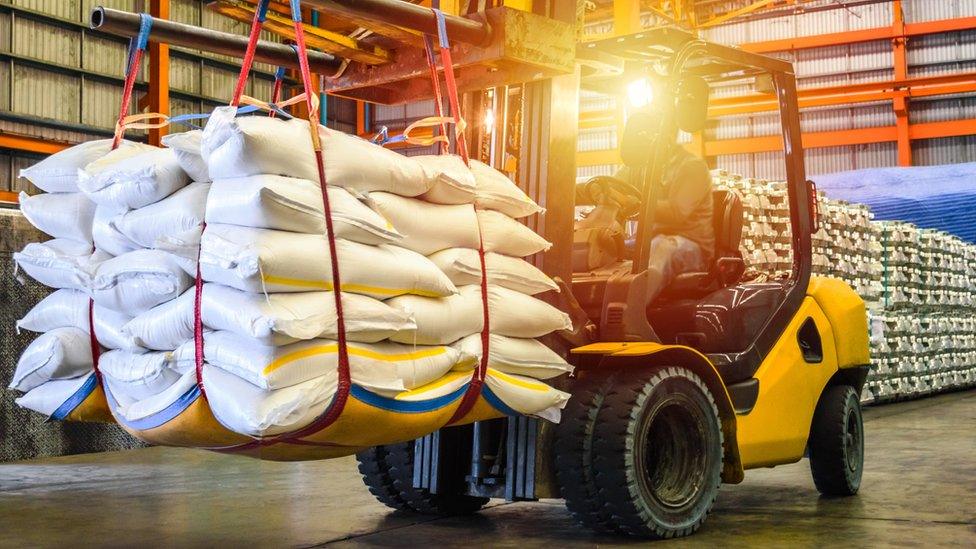UK productivity continues lost decade
- Published
- comments

UK workers' productivity fell again in the final three months of last year, down by 0.1% compared with the same quarter a year ago.
It was the second year-on-year quarterly fall in a row, after a 0.2% drop in the July-to-September period.
The Office for National Statistics (ONS) said the "productivity puzzle" had been a problem for years.
It said labour productivity was lower over the past decade than at any time in the 20th Century.
"It has taken the UK a decade to deliver 2% growth, which historically was achieved in a single year," said ONS deputy chief economist Richard Heys.
Although it was down compared with the final quarter of 2017, productivity over the final three months of 2018 was 0.3% higher than in the July-to-September period.

Productivity - as measured by the amount of work produced per working hour - is the main driver of long-term economic growth and higher living standards.
However, growth has been sluggish over the past decade as the UK economy has recovered from the downturn triggered by the financial crisis.
The ONS said productivity in the fourth quarter of 2018 was 18.3% below its pre-downturn trend.

Analysis
Jonty Bloom, business correspondent
It has been going on for more than 10 years now, but the productivity puzzle does not seem like ending any time soon.
It is vastly important, as we can only really pay ourselves more if we make more, and in the last decade we have achieved productivity growth of just 2%, a rate we used to manage regularly each and every year.
The causes are also not clear. While it is true we are employing more people, it seems that they are going into unproductive jobs.
This is called the car wash problem: 20 years ago, car washes were already fully automated, but now they consist of five men and a bucket - less productive, not more.
You would expect the top firms in the UK - the elite, highly competitive engineering, pharmaceutical and high-tech industries - to be storming ahead with new technologies and digital working, but that doesn't seem to show up in the figures either. Also, their expertise is not trickling down into smaller businesses like it used to.
Multiple factors are at work, but one thing is clear: this has all happened since the credit crunch. That huge economic shock seems to have created a permanent long-term change to how our economy develops, and not in a good way.

Howard Archer, chief economic adviser to the EY Item Club, said: "The UK's 'productivity puzzle' is a source of much debate and analysis.
"Part of the UK's recent poor labour productivity performance has undoubtedly been that low wage growth has increased the attractiveness of employment for companies. This helped employment to hold up well during the 2008-09 downturn and to pick up as growth returned."
He added: "It is also probable that many companies took on labour rather than committing to costly investment, given the highly uncertain economic and political outlook. The low cost of labour relative to capital has certainly supported employment over investment."
- Published3 April 2019

- Published1 April 2019

- Published26 October 2018
